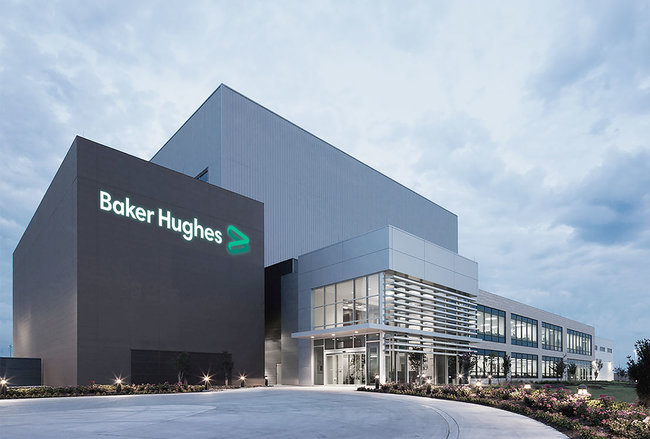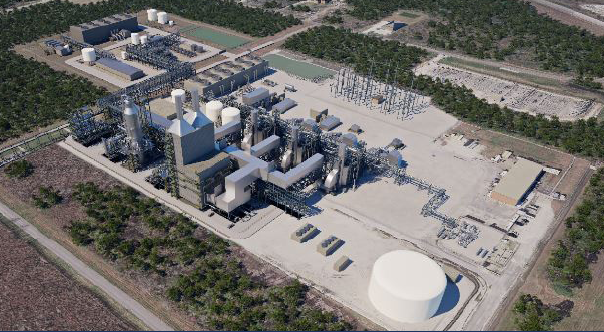
Investment resilience in U.S. carbon capture shows industry strength
Despite inflation and policy turbulence, carbon capture, utilization and storage (CCUS) continues to gain traction across the United States. From first-mover cement producers to energy-tech innovators, companies are pushing ahead with commercial-scale CCUS developments. Their efforts reflect a shared belief: carbon capture isn’t just a compliance tool—it’s an economic and climate opportunity.
Corporate vision meets carbon capture commitment
While many CCUS projects are still in the pilot or design stage, big names are stepping up to scale. FuelCell Energy, Baker Hughes, and Heidelberg Materials are among those betting big on CCUS. Each is applying CCUS to power generation or hard-to-abate sectors like cement production, demonstrating sector-wide faith in the tech’s potential.
"By integrating gas-fired energy with the potential for permanent carbon storage, we are creating a direct, reliable power solution tailored to evolving industrial needs," said Robby Rockey, CEO of Frontier Infrastructure, who is partnering with Baker Hughes.
>> RELATED: Resilience and Rethink: Why Hydrogen and Carbon Capture Still Deserve a Seat at the Table

Federal incentives fuel early momentum
The Biden administration's 45Q tax credit, offering up to $85 per ton of CO2 sequestered, was a key spark. It catalyzed over 270 new CCUS projects, according to the Carbon Capture Coalition, pushing innovation across power, manufacturing, and fuel sectors. The Infrastructure Investments and Jobs Act also channeled $1.7 billion in public-private CCUS funding.
However, that momentum faces potential slowdown under the Trump administration's current spending review. While the 45Q credit may stay (as many projects are in Republican-leaning states), DOE grants and pilot funds are under threat. Even so, developers aren't backing down.
Cement, a surprising CCUS frontrunner
Of all sectors, cement is fast becoming a proving ground for carbon capture. Global giant Heidelberg Materials is taking bold steps, with projects underway in both Indiana and Norway. Its Mitchell cement plant in Indiana is expected to capture 2 million tonnes of CO2 per year by 2030, while its Brevik facility in Norway opens this year as Europe’s first commercial-scale cement CCUS plant.
"CCUS could account for 36% of the industry’s carbon reductions by 2050," said a Heidelberg spokesperson, citing projections from the Global Cement and Concrete Association. With strong policy support and DOE funding through the CarbonSAFE program, these initiatives show what’s possible with public-private collaboration.
Strategic partnerships make the model
Tech providers and infrastructure firms are pooling strengths to fast-track projects. Baker Hughes recently partnered with Frontier Infrastructure to co-develop CCUS hubs integrated with gas-fired power and data center facilities. These projects cater directly to the soaring energy needs of AI and cloud storage industries.
At the same time, Calpine Corporation is negotiating with the DOE for support in scaling CCUS at its Baytown, Texas combined heat and power facility. If approved, it will sequester 2 million tonnes annually, another leap toward durable deployment.

>> In Other News: CCUS Projects Around the World Are Reaching New Milestones
A financing shift is underway
Yes, CCUS is capital-intensive. Developers are navigating inflation-driven cost hikes and a cautious investment climate. According to Howard Herzog, senior engineer at the MIT Energy Initiative, inflation and permitting challenges have raised capital costs by roughly 30% since the pandemic.
But the sector is adapting. Companies like Baker Hughes and FuelCell Energy are funding initial projects internally, while exploring new models that blend energy generation and carbon storage in one revenue-generating system. Investors are warming to the idea of CCUS as a multi-use infrastructure asset.
Data centers could be CCUS's unlikely hero
The rise of energy-hungry data centers presents an unexpected boost for carbon capture. Operators need reliable, grid-independent power that also meets sustainability targets. That’s where hybrid systems—gas-fired power with CCUS, or hydrogen-ready plants —can shine.
Jason Few, CEO of FuelCell Energy, noted the rising demand: "We are excited to support Mike Hill’s agenda to drive top-line growth for the company," he said after announcing a leadership transition aimed at scaling commercial outreach.
FuelCell recently partnered with TESIAC and Diversified Energy Co. to deliver up to 360 megawatts of clean power to data centers in Virginia, West Virginia, and Kentucky.
What lies ahead
Even with near-term policy uncertainty, the long-term trajectory for CCUS is increasingly clear. More than a stopgap, CCUS is now seen as essential infrastructure for decarbonizing energy and industry. The U.S. may well double its CCUS capacity to 104 million tonnes annually by 2034, per forecasts from Wood Mackenzie.
As Peter Findlay, Director of CCUS Economics at Wood Mackenzie, noted: "Increased and more certain incentives to decarbonize would spur this number higher." And with growing pressure from investors, regulators, and the public, the message is being heard.
The CCUS sector is stepping up—from first-of-their-kind cement projects to hybrid data center hubs. What’s clear is that the companies leading the charge aren’t just adapting to climate reality. They’re shaping the infrastructure of a cleaner, more resilient future.
Subscribe to the newsletter
Daily decarbonization data and news delivered to your inbox
Follow the money flow of climate, technology, and energy investments to uncover new opportunities and jobs.
Companies
Latest issues
-
This $4.1M Deal Could Change Carbon Capture's Playbook
Inside This Issue 🗜️ CarbonQuest Lands $4.1M Alberta Deal on Gas Compressors 🛡️ CADO, 123Carbon, and Assure SAF Registry Join Forces to Tackle SAF Integrity Gaps ✈️ ISCC, OMV, and Airbus Partner t...
-
Can Koloma Crack Iowa's Billion-Year-Old Secret?
Inside This Issue ⛏️ Iowa's Hydrogen Rush: Can Koloma Strike Gold Before Rules Kick In? ✈️ Bentley Commits to Use 100% Sustainable Aviation Fuel for Car Airfreight 🌬️ Minister Parrott Provides Upd...
-
$47M Just Poured Into This SAF Producer
Inside This Issue 💰 LanzaJet Announces $47M in New Capital and First Close of Equity Round at $650M Pre-Money Valuation 🚢 Maersk's Ethanol Bet Could Reshape U.S. Fuel Markets 🪨 Canada Nickel and t...
Company Announcements
-
Feedstocks are Perennial Grasses and other Renewable Biomass Sources FREDERICK, Md., Feb. 18, 2026 /PRNewswire/ -- Do you know why passenger and freight planes are not using renewable biofuel? It'...
-
Vancouver, British Columbia--(Newsfile Corp. - February 25, 2026) - Q Precious & Battery Metals Corp. (CSE: QMET) (OTC Pink: BTKRF) (FSE: 0NB) ("QMET" or the "Company") congratulates Quebec Inn...
-
Carbon Direct and C2X Announce Collaboration on Pioneering Forestry Residue-to-Biofuel Project
Collaboration on C2X’s Beaver Lake Biofuels project advances biomass carbon removal and storage as a scalable climate solution, transforming Louisiana’s forestry and sawmill residues into biofuel a...
-
Carbon Direct and C2X Announce Collaboration on Pioneering Forestry Residue-to-Biofuel Project
Collaboration on C2X’s Beaver Lake Biofuels project advances biomass carbon removal and storage as a scalable climate solution, transforming Louisiana’s forestry and sawmill residues into biofuel a...
